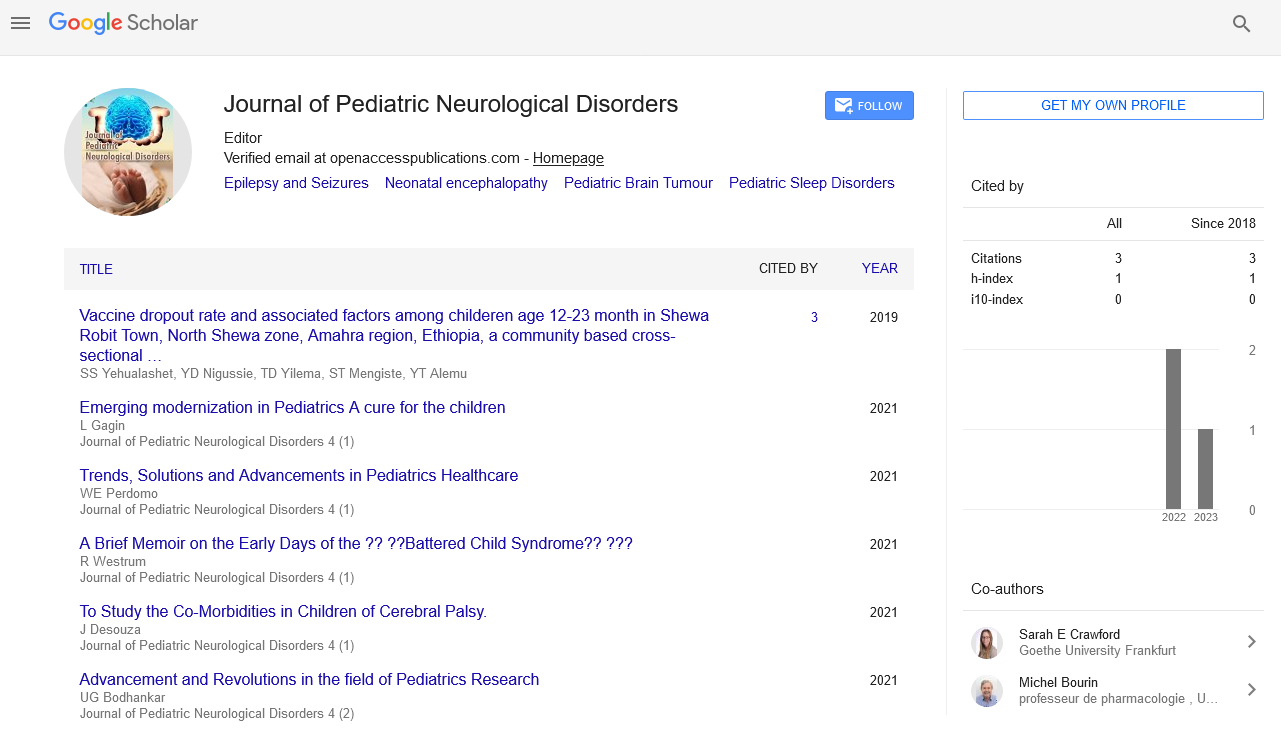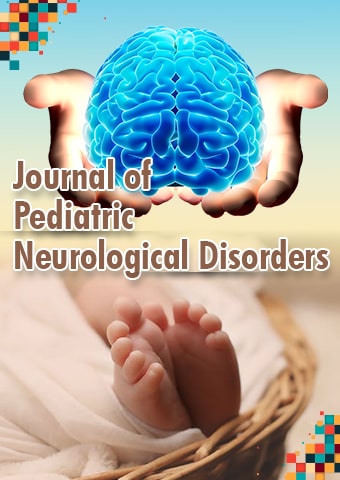Short Communication - Journal of Pediatric Neurological Disorders (2020) Volume 3, Issue 4
Mastering the microbiota for a healthy gut...feeding update
Said El deib
NMC Healthcare LLC, UAE
Abstract
Background and Aims: Our Study aims to state the evidence-based effect the implementation of new born infant nutrition with prebiotics and probiotics has been demonstrated to be effective in changing microflora composition toward the desired breast-feeding pattern and stimulating immune response.
Methods: Considerable efforts have been made to mimic the composition of human milk by the addition to formula feeding of living bacteria (probiotics), non-digestible fibers, nucleotides and oligosaccharides (prebiotics), and bovine lactoferrin in order to induce breast-fed-similar microbiota colonization in formulafed infants, with the final aim to stimulate the maturation and proper function of the immune system.
Several studies performed in the past decades have clearly demonstrated the complexity of gut microbiota composition and the modulatory effect played by several endogenous and exogenous factors on it. Type of feeding in the first months of life appears as one of the most important determinants of the child and adult well-being, and its protective action seems to rely mainly on its ability to modulate intestinal microflora composition at early stages of life
In recent years, the implementation of milk formula with prebiotics, probiotics, and lactoferrin has been demonstrated to change new borns microflora composition toward breast-feeding pattern and stimulate immune response. Diet has a dominant role over other possible variables such ethnicity, sanitation, hygiene, geography, and climate, in shaping the gut microbiota
Conclusions: No definitive results are available regarding the real health improvement, so that breast milk, whose beneficial health-effects are undoubtedly unique, has to be considered the food of choice for infants in the first 6 months of life.
For the same reasons, breast-feeding should be encouraged and, at the same time, new researches are advised in order to better define the composition of intestinal microbial ecosystem and the specific interactions amongst diet, microbiota composition, and children health.
Biography
Said El deib is a Pediatrician and Neonatologist whose experience in the field spans 15 years, backed by a higher education degree from royal college of pediatrics and child health in UK. In addition to master degree from Ain Shams University in Egypt one of the oldest and top ranking universities. He is pioneering an open and contextual evaluation model based on constructive responses, which has led in the creation of new methods to improve pediatric healthcare, neonatology and pediatric nutrition. He has established this model following his years of experiences in medical practice, research and evaluation, and teaching and administration in hospitals and medical universities in the reigion, including Egypt, kuwait and the UAE. He has published studies in reputable international journals in neonatology and pediatric nutrition. He has also presented his findings in prestigious international conferences and symposia.

